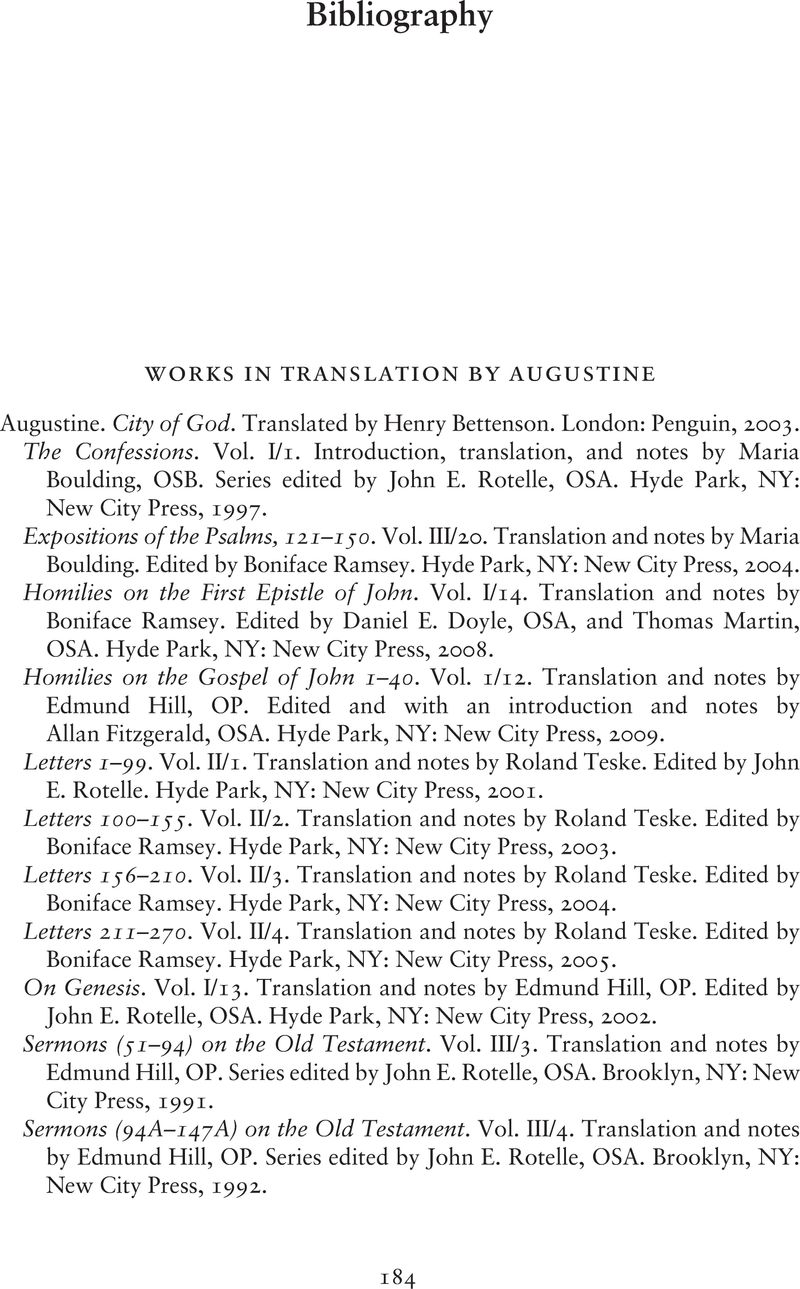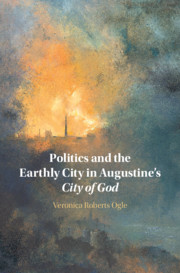Book contents
- Politics and the Earthly City in Augustine’s City of God
- Politics and the Earthly City in Augustine’s City of God
- Copyright page
- Dedication
- Epigraph
- Contents
- Acknowledgments
- Abbreviations
- Introduction
- 1 The Parodic City
- 2 The Sack of Roma Aeterna
- 3 Exposing the Worldly Worldviews of Empires, Patriots, and Philosophers
- 4 Roman History Retold
- 5 The Sacramental Worldview and Its Antisacramental Distortion
- 6 The Status of Politics
- Conclusion
- Bibliography
- Index
- References
Bibliography
Published online by Cambridge University Press: 05 November 2020
- Politics and the Earthly City in Augustine’s City of God
- Politics and the Earthly City in Augustine’s City of God
- Copyright page
- Dedication
- Epigraph
- Contents
- Acknowledgments
- Abbreviations
- Introduction
- 1 The Parodic City
- 2 The Sack of Roma Aeterna
- 3 Exposing the Worldly Worldviews of Empires, Patriots, and Philosophers
- 4 Roman History Retold
- 5 The Sacramental Worldview and Its Antisacramental Distortion
- 6 The Status of Politics
- Conclusion
- Bibliography
- Index
- References
Summary

- Type
- Chapter
- Information
- Politics and the Earthly City in Augustine's City of God , pp. 184 - 194Publisher: Cambridge University PressPrint publication year: 2020



